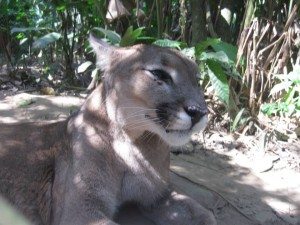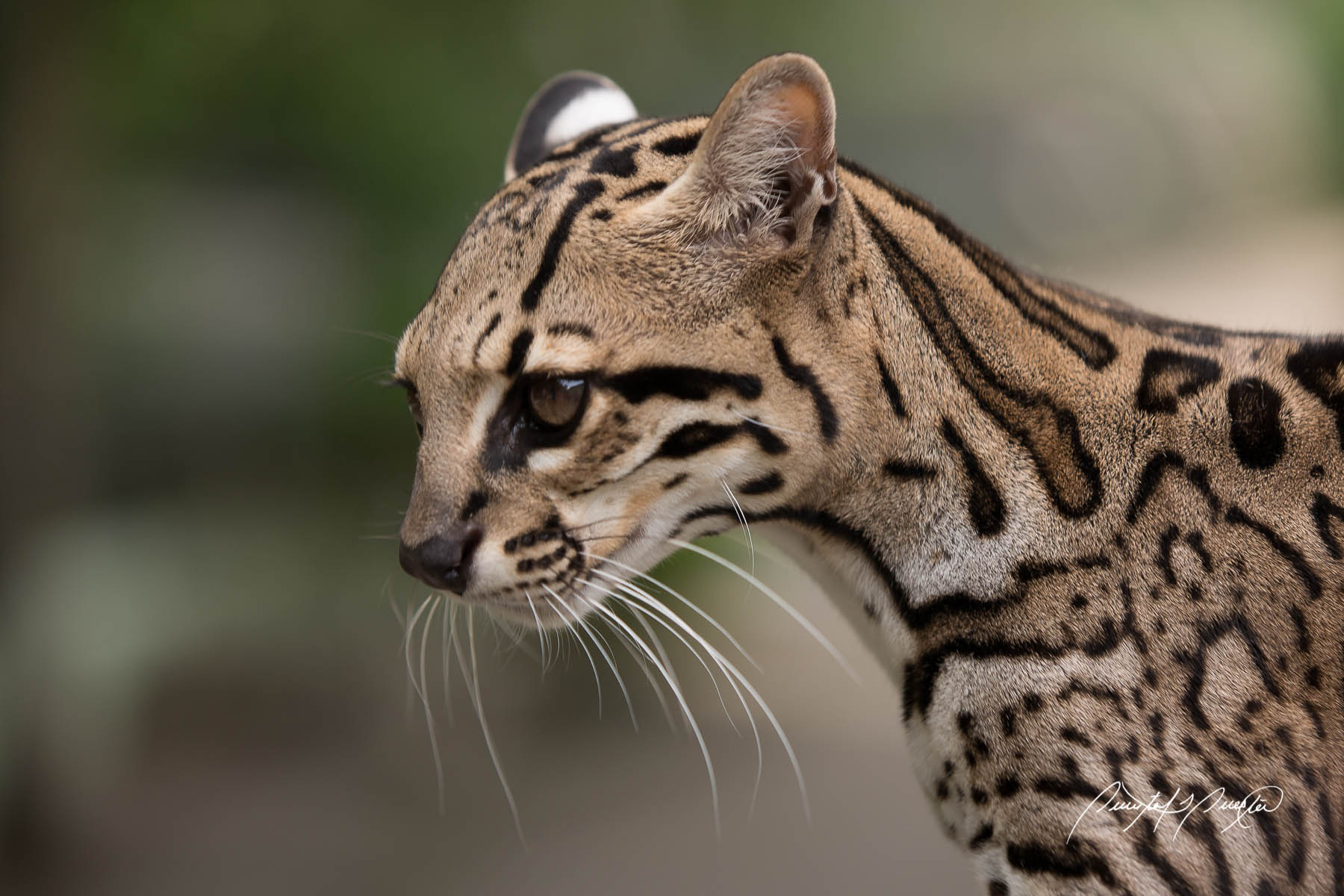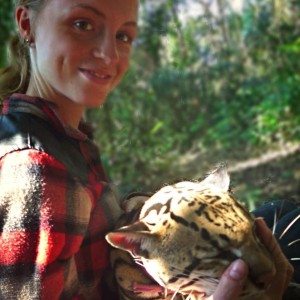W’Ocelot of fun: wild cats in Bolivia
Welly boots on, meat bucket in hand and a cheery electro swing soundtrack blasting through my earphones, I set off for my daily 40-minute walk to see my puma: a highway with no sidewalks and trucks hurtling by at what feels like 100km per hour. Humming, I turn left and, climbing over a fallen tree, I find the dirt path that leads to the cage. Just a 20-minute walk through mud and marsh earth and I’m there. Oblivious of the mud splattered over my jeans, I call out to my cat and, turning the last corner, see him emerging slowly towards the edge of his cage, his eyes wide, head cocked, pacing to and fro. Just him and me.
* * *
The train has been delayed for 10 minutes, we apologize for the inconvenience
Sighs of impatience, glances at watches, and nervous texting resonated along the platform. I did the same, dropping my huge hiker’s backpack not so gracefully before me. Little did I know that about 35 hours of travel later, having safely landed in La Paz, Bolivia, I would be waiting for a bus not for 10 minutes, but for an hour and a half, and on which I would be travelling for not two, but 20 hours.
I am pretty sure that if I had known while standing on that platform that in less than three weeks someone would utter the sentence, “You’ll be responsible for the largest male puma in the camp,” I would have had a minor breakdown and run as fast as I could from the psycho.
So why did I accept this challenge so readily when it presented itself to me? For the record, this wasn’t just an act of bravery on my part. Every single member of my group took on the roles handed to them with no questions asked. Everyone came from similar backgrounds: all were from developed countries, and most were students from the UK. The craziest thing we had previously done probably went more along the lines of blacking out during freshers’ week. But enclosed in an environment of forever-reaching trees, straw mattresses, no electricity, and a daily wake-up call at 6.30am to complete morning tasks, these challenges were no longer unthinkable.
Everyone knows the cliché of travelling with the aim to “find yourself”. I have never understood what that really means, but one sure thing I have realised is how dependent human action is on the environment they surround themselves in. Having plunged into this unfamiliar atmosphere, a sort of survival instinct kicked in. The new routine of living very suddenly brought upon new expectations, new norms that were quickly adopted. Every morning, straight after breakfast, I would go for a walk with my ocelot, and in the afternoons, I made my way to my puma. Dinner at six, bed at eight.
This isn’t to say that life didn’t often and suddenly rush back to remind me of my old predispositions. In one instance, life came in the form of a cat’s mouth, stubbornly clinging to my kneecap. This was my first excursion with my ocelot, a moody but extremely affectionate cat. The latter characteristic was one that I was not yet fully convinced of when I saw the growling creature latched onto my thigh, his claws piercing into my (way too skinny) jeans. I looked up at my partner in horror, and couldn’t help a nervous squeal: “help me!”
“No mas!” My partner pulled the cat down by his collar. “Oh don’t worry, he’s just testing you. You might want to rethink the trousers though…”
And that was that. He jumped – we simply pulled him down and explained in harsh but soothing words that he should stop. And so he often did. And as time went on, I realised that the animals did not have some kind of irrational aggression that they acted out on humans, but that it was rather the fear that was projected onto them by humans that spurred their distrust. Instead of treating these animals with animosity and fear, we were encouraged to look at them in a nurturing, if not maternal way, and this was, to my sheer amazement, reciprocated by the animal.
The reason I insert this anecdote is to show how immediately my peers and myself adopted these mannerisms. Whether it was walking a jaguar, being fondly embraced by a puma, or being confronted by the ominous sounds of the jungle; all of it was swiftly accepted and integrated into one’s life pattern. How is it being back at home? Regretfully, pretty much the same. The shower felt better than it ever had in the first instance, but I have once again gotten used to the privileges I had before. From one contained bubble of potential into the next, I anticipate what my next destination will reveal.


Comments